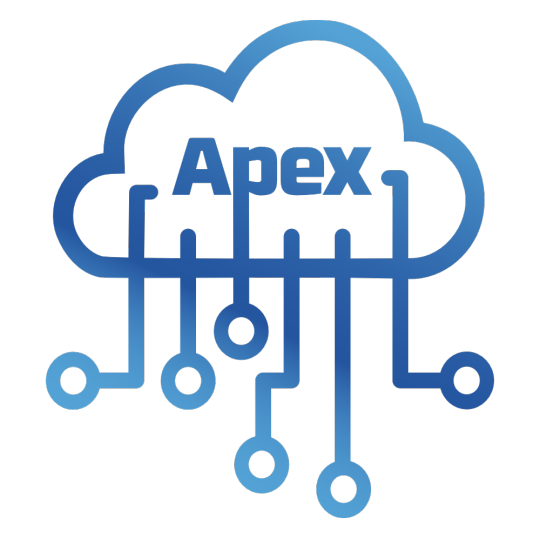Text
Demystifying Apex Cloud Development: Unveiling Two Distinct Approaches

The term "Apex Cloud Development" can be interpreted in two ways, depending on the context. This article explores both avenues, providing clarity on the functionalities and benefits associated with each approach.
1. Salesforce Apex for Cloud Development
Salesforce, a leading customer relationship management (CRM) platform, offers a powerful object-oriented programming language called Apex. This language allows developers to extend the functionality of the Salesforce platform by creating custom applications, automations, and business logic.
Here's a breakdown of key aspects of Salesforce Apex for cloud development:
Functionality: Apex code can be used for various purposes within the Salesforce ecosystem. Here are some prominent examples:
Data Manipulation: Develop custom logic to manage data within Salesforce objects, including creating, updating, and deleting records.
Business Logic: Implement complex business rules and processes that automate tasks and workflows within Salesforce.
User Interface Extensions: Extend the Salesforce user interface by creating custom buttons, Visualforce pages (declarative user interfaces), and Lightning components (modern UI elements).
Integration with External Systems: Connect Salesforce to external systems and applications using Apex for data exchange and synchronization.
Development Process: The Salesforce development process typically involves the following steps:
Development Environment: Utilize a Developer Edition org, a free sandbox environment provided by Salesforce, for development and testing.
Coding: Write Apex code using a development tool like Salesforce Developer Console (web-based) or an IDE like Visual Studio Code with the Salesforce Extension Pack.
Testing: Rigorously test Apex code to ensure functionality and avoid errors in production. Salesforce provides tools and frameworks for unit testing and integration testing.
Deployment: Deploy tested code to a production org or another sandbox environment for user access.
Benefits of using Salesforce Apex for Cloud Development:
Increased Efficiency: Automating tasks and workflows with Apex streamlines processes, saving time and effort.
Enhanced Functionality: Extend the capabilities of Salesforce to meet specific business needs.
Improved User Experience: Create custom user interfaces that cater to individual user workflows.
Seamless Integration: Connect Salesforce with other applications to create a unified data ecosystem.
2. Oracle APEX Cloud Development
Oracle Application Express (APEX) is a low-code development platform offered as a cloud service by Oracle. It allows developers to build web applications using a visual interface with minimal coding required.
Here's a closer look at the core functionalities of Oracle APEX Cloud Development:
Functionality: APEX empowers developers to create:
Database-driven Web Applications: Construct web applications that leverage an Oracle Database for data storage and retrieval.
Interactive Dashboards & Reports: Develop user-friendly dashboards and reports to visualize data effectively.
Mobile-friendly Applications: Build responsive applications that can be accessed on various devices, including smartphones and tablets.
Custom Workflows & Automation: Implement workflows and automations to streamline business processes within the application.
Development Process: The development process with APEX is streamlined:
Development Environment: Utilize the browser-based APEX development workspace within the Oracle Cloud environment.
Visual Development: Build applications primarily using a drag-and-drop interface with minimal coding needed for complex functionalities.
Testing: Test applications within the development workspace to ensure proper functioning.
Deployment: Deploy finished applications to a production environment within Oracle Cloud.
Benefits of using Oracle APEX Cloud Development:
Rapid Development: The visual development approach significantly reduces development time compared to traditional coding.
Reduced Development Costs: Low-code development requires less coding expertise, potentially lowering development costs.
Scalability: Applications built on APEX can scale to accommodate growing user bases and data volumes.
Security: Leverage the robust security features of Oracle Cloud to ensure application security.
Choosing the Right Approach:
The choice between Salesforce Apex and Oracle APEX depends on your specific needs and skillsets. Here's a basic guideline:
Salesforce Apex: If you're already using Salesforce and need to extend its functionalities or integrate it with other systems, consider Salesforce Apex. It requires programming expertise but offers greater customization and control.
Oracle APEX: If you need to build web applications quickly and efficiently, with minimal coding, and leverage the power of an Oracle Database, then Oracle APEX might be the better choice.
Apex Cloud Development encompasses two distinct yet powerful approaches to building cloud applications. Understanding the functionalities and benefits of both Salesforce Apex and Oracle APEX empowers you to select the right tool for your specific cloud development needs.
1 note
·
View note